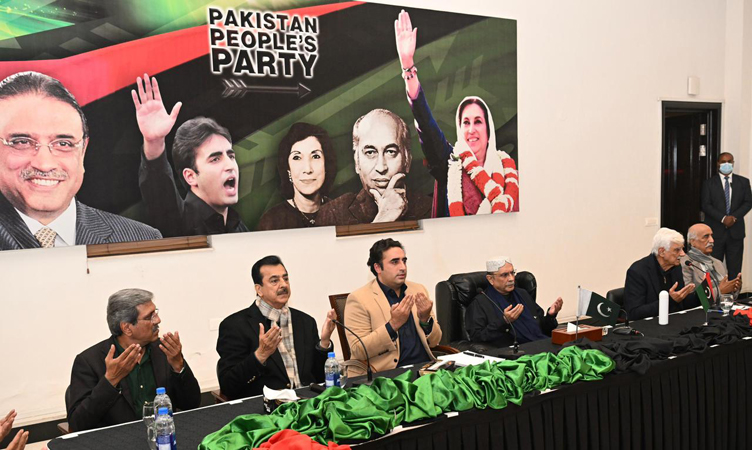 In a groundbreaking move, Chairman Bilawal Bhutto Zardari announced the PPP’s ’10 Points’ manifesto after unanimous endorsement by the Central Executive Committee (CEC). President Zardari nominated Bilawal as the Party’s Prime Ministerial candidate, vowing to address the nation’s challenges through revolutionary policies.
In a groundbreaking move, Chairman Bilawal Bhutto Zardari announced the PPP’s ’10 Points’ manifesto after unanimous endorsement by the Central Executive Committee (CEC). President Zardari nominated Bilawal as the Party’s Prime Ministerial candidate, vowing to address the nation’s challenges through revolutionary policies.
Chairman Bilawal outlined the PPP’s transformative vision, promising to double citizens’ income within five years, provide 300 units of free electricity to the underprivileged, and establish green energy parks nationwide. Free quality education, healthcare, and three million homes for the less fortunate were also among the bold commitments.
Furthermore, the PPP plans to expand the Benazir Income Support Programme, introduce ‘Kissan’ and ‘Mazdoor’ cards, and support youth employment through the ‘Youth Card.’ The ‘Bhook Mitao’ program aims to tackle rising hunger at the grassroots level.
In response to queries, Chairman Bilawal emphasized the need to bridge internal divisions, asserting that the PPP is uniquely positioned to foster national unity. The party vows to redirect subsidies from elites to the poor, shuttering federal ministries that require devolution. Bilawal expressed confidence in the PPP’s ability to stabilize the nation amid economic, political, and foreign affairs challenges.
Addressing terrorism concerns, Bilawal condemned threats to Maulana Fazlur Rehman and Mohsin Dawar, highlighting the party’s historical resilience against terrorism. He stressed the PPP’s commitment to abolishing policies supporting terrorists post-election.
Responding to potential opponents, Bilawal underscored the PPP’s commitment to represent the common man, rebuffing the notion of political enemies. He called for fair play in constituencies and urged respect for constitutional boundaries.
Looking ahead, Bilawal asserted that the PPP believes in democracy and urged all political parties to uphold constitutional principles. The Chairman confirmed the party’s detailed manifesto would be presented soon, urging a departure from political immaturity for a more inclusive political landscape.